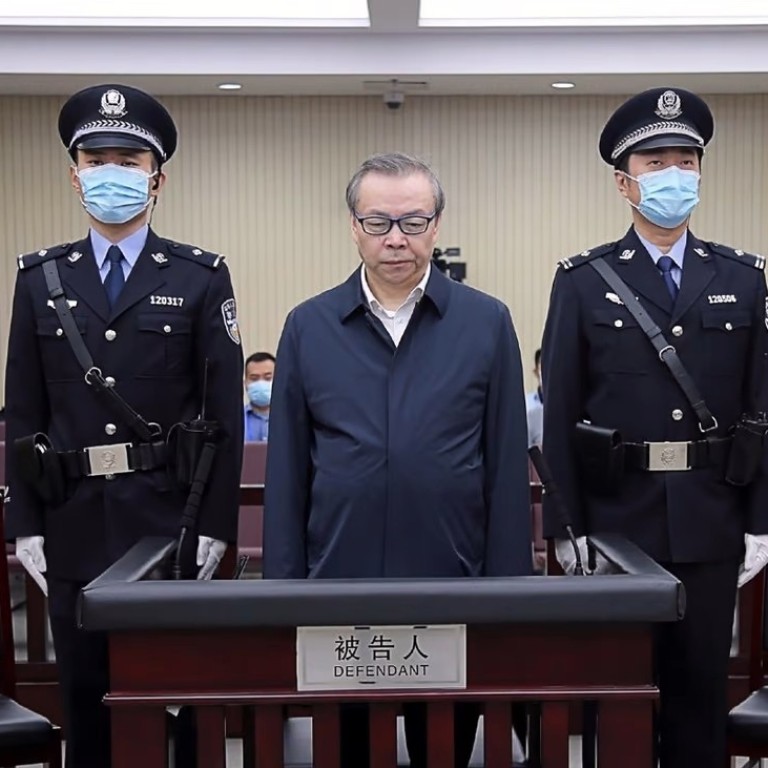
China’s financial sector must ‘develop with Chinese characteristics’ after corruption probe
- China’s Central Commission for Discipline Inspection (CCDI) has concluded a two-month inspection of 25 institutions
- The anti-corruption watchdog found various problems within the financial sector, with ‘outstanding issues’ needing to be addressed swiftly, the Politburo said
Beijing will strengthen control of China’s financial risks and steady the economy after its top anti-corruption watchdog uncovered a number of weaknesses within the financial sector during a two-month investigation.
“[We must] adhere to the principle that finance serves the real economy, severely punishing corruption in the financial sector, and effectively resolving major financial risks,” the official Xinhua News Agency reported on Friday, citing a Politburo meeting chaired by President Xi Jinping.
China’s top decision-making body said that China will implement a strategy to expand domestic demand and promote steady growth in foreign trade and investment.
However, there are still “outstanding issues” within the financial system following the inspection carried out by the Central Commission for Discipline Inspection (CCDI) that need to be addressed swiftly, the Politburo said.
It is necessary to strengthen the prevention and control of financial risks and resolutely safeguard the overall situation of financial stability
It is necessary to strengthen leadership by the Central Committee of the Chinese Communist Party over the financial sector, the Politburo said, adding that the financial sector must strictly follow “development with Chinese characteristics”.
“It is necessary to strengthen the prevention and control of financial risks and resolutely safeguard the overall situation of financial stability,” the Politburo said.
The problem of the so-called revolving door, a term referring to corruption among officials who have left their official posts to take up a job with a private company, must be swiftly tackled, the Politburo added.
The Politburo statement comes after China’s top anti-corruption watchdog concluded an inspection of 25 institutions, including the central bank, the banking and insurance regulator, stock exchanges, commercial banks and asset-management companies, as part of the country’s first coordinated inspection of the sector since 2015.
Some lack political responsibility in implementing the deployment of financial reform, and the promotion of some reform tasks is not strong enough
In a statement by the CCDI on Thursday, the anti-corruption body said it had found problems with using regulatory power for personal gain in the financial sector, “gaps” in the implementation of government directives and “weak” links in officials from the top to the bottom when carrying out reforms and party objectives.
“Some lack political responsibility in implementing the deployment of financial reform, and the promotion of some reform tasks is not strong enough,” the CCDI statement said.
Hot money flows into China, but risks ahead as US edges towards rate increase
The country’s central bank chief, Yi Gang, on Thursday pledged to step up efforts to support the real economy, prevent financial risks and speed up the building of a modern central bank system in response to the CCDI inspection findings.
Beijing has renewed its push to prevent financial risks in its state-dominated financial system from spiralling out of control despite the country’s slowing economy.

